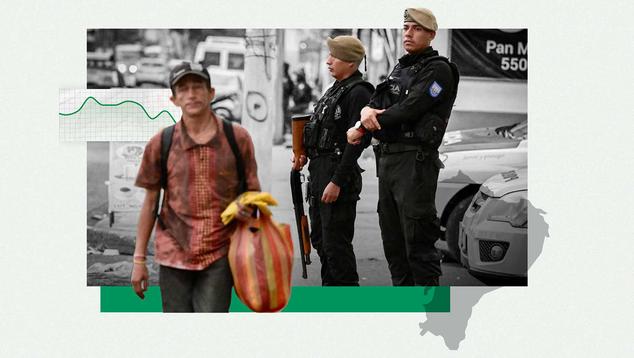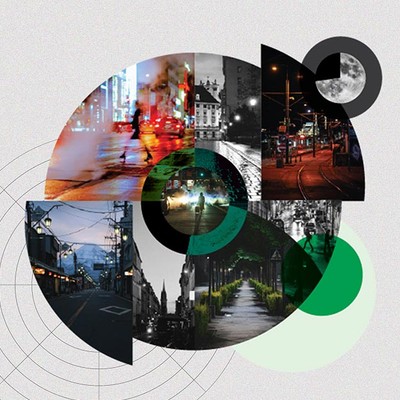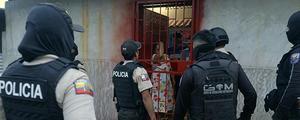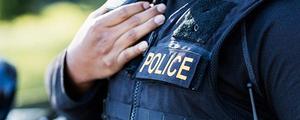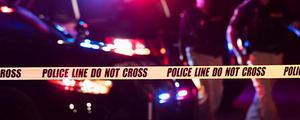WASHINGTON, D.C. -- Gallup’s latest annual update on global safety shows people worldwide feel safer today than they did a decade ago, but many countries have a long way to go to achieve the “peaceful societies” that are essential for sustainable development.
In 2023, 70% of adults worldwide said they feel safe walking alone at night where they live, which is considerably higher than it was a decade ago and at most points in Gallup’s nearly 20-year trend. However, progress has stalled on this measure in the past several years, and slightly fewer people today feel safe than in 2020, when a record-high 72% felt safe.
Regionally, at least seven in 10 people feel safe in Asia-Pacific, Western Europe, the Middle East and North Africa, Northern America (U.S. and Canada), and post-Soviet Eurasia. Of all the regions, post-Soviet Eurasia has gained the most ground in the past two decades; almost twice as many felt safe in 2023 (71%) as in 2006 (37%).
People continue to feel the least safe in sub-Saharan Africa (51%) and Latin America and the Caribbean (47%). Further, feelings of safety have declined more in sub-Saharan Africa than in any other region over the past two decades. In Latin America and the Caribbean, the percentage who said they feel safe has never topped 50%.
Ecuadorians Least Likely in the World to Feel Safe
For years, the small Andean nation of Ecuador was known as a relatively peaceful country, located between the world’s two largest cocaine producers, Colombia and Peru. But since COVID-19, the country has spiraled into a deep security crisis. Ecuador is an increasingly important node in global cocaine trafficking.
Gang violence and homicides have spiked as a result, with Ecuador’s murder rate reaching nearly 50 per 100,000 residents in 2023, one of the highest rates in the world.
In 2023, just 27% of Ecuadorians said they felt safe walking alone at night where they live, which is a new record low for the country, the lowest in Latin America, and numerically the lowest in the entire world (South Africa and Liberia are statistically on par at 30%).
Just 11% of residents in Ecuador’s most populous province, Guayas, said they feel safe walking alone in their area at night -- which is the lowest of any region of the world, not including active war zones.
The countries in which residents are least likely to say they feel safe walking alone at night are exclusively a mix of countries in sub-Saharan Africa and Latin America and the Caribbean -- which tends to be the case each year. Only Namibia and Malawi were not on the list in 2022.
In most economically developed countries and territories with strong rule of law, high majorities of residents said they feel safe walking alone in their areas at night. The same is true in countries where populations are under tighter state control. For example, these feelings were nearly universal in 2023 in countries such as Kuwait (99%), Singapore (94%), Tajikistan (92%), Saudi Arabia (92%) and the United Arab Emirates (90%).
El Salvador Ranks Among ‘Most Safe’ for First Time
El Salvador, once known as the murder capital of the world, made the top of the “most safe” list for the first time in 2023, with a record-high 88% of residents saying they feel safe.
Although the country has drifted toward becoming a police state, the government’s crackdown on gangs -- which have incarcerated approximately 2% of the country’s population -- has made the country safer. El Salvador currently boasts one of the lowest homicide rates in the Western Hemisphere.
Fewer Israelis Feel Safe in Wake of Oct. 7 Attacks
At 82% in 2022, Israelis’ perceived safety was higher than levels in other OECD member states, such as Japan (78%), Germany (78%) and the U.S. (73%).
In the immediate aftermath of the Hamas attacks on Israel in October 2023, this was no longer the case. A much lower 68% of Israelis said they felt safe walking alone at night where they live.
Helping People Feel Safe Takes a Community, Rather Than a National, Approach
A Gallup analysis of people’s feelings of safety by country-income group suggests that strategies to help people feel safer may find more success if they start at the local level.
In addition to asking people about their safety, Gallup also asks about their confidence in institutions, trust in police, and satisfaction with different aspects of their communities.
Confidence in these national institutions, such as national government, the military, judiciary, and the honesty of elections, is only weakly related to perceived safety, but the odds that people feel safe increase if they are confident in more of these institutions.
However, across all countries, regardless of country-income group, two things matter most to people’s perceptions of safety:
- people’s trust in their local police
- people’s satisfaction with their communities as places to live

Bottom Line
In our uncertain world, it’s not enough to make sure that people are safe. They also need to feel safe. When people feel safe, they devote time and energy to learning opportunities and to their relationships with their families, communities and workplaces.
Feeling safe fosters trust in these relationships. This trust forms a foundation for collaboration, cooperation and social development, which makes communities more resilient to challenges such as natural disasters, economic downturns, political conflicts or health crises like the recent pandemic.
Read The Global Safety Report: Measuring Personal Security Worldwide.
Zacc Ritter contributed to Gallup’s analysis of people’s feelings of safety by country-income group.
To stay up to date with the latest Gallup News insights and updates, follow us on X @Gallup.
For complete methodology and specific survey dates, please review Gallup's Country Data Set details.
Learn more about how the Gallup World Poll works.
